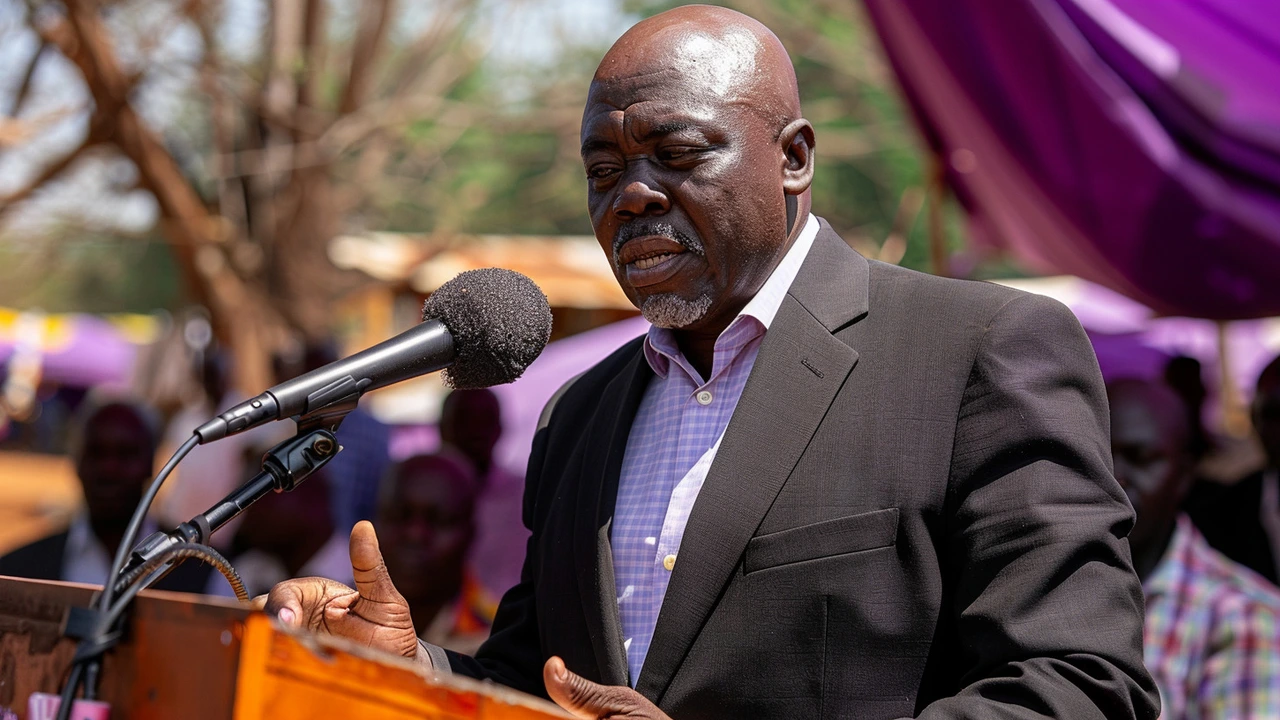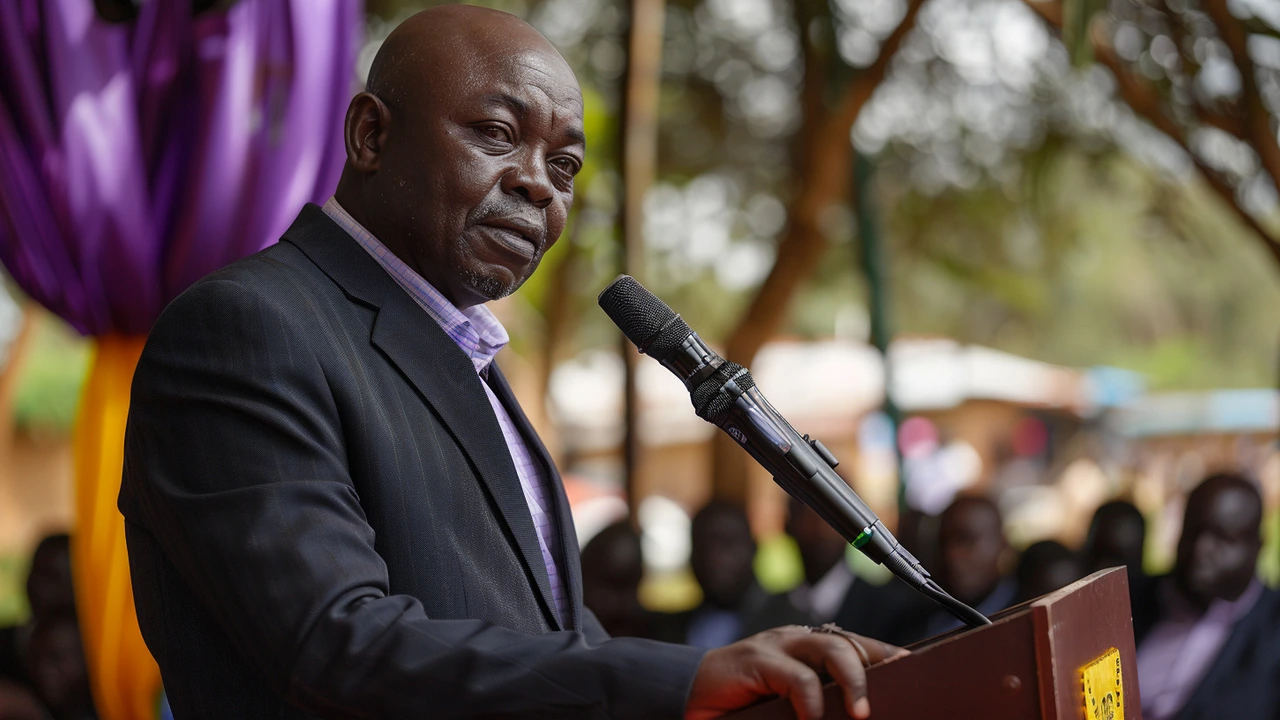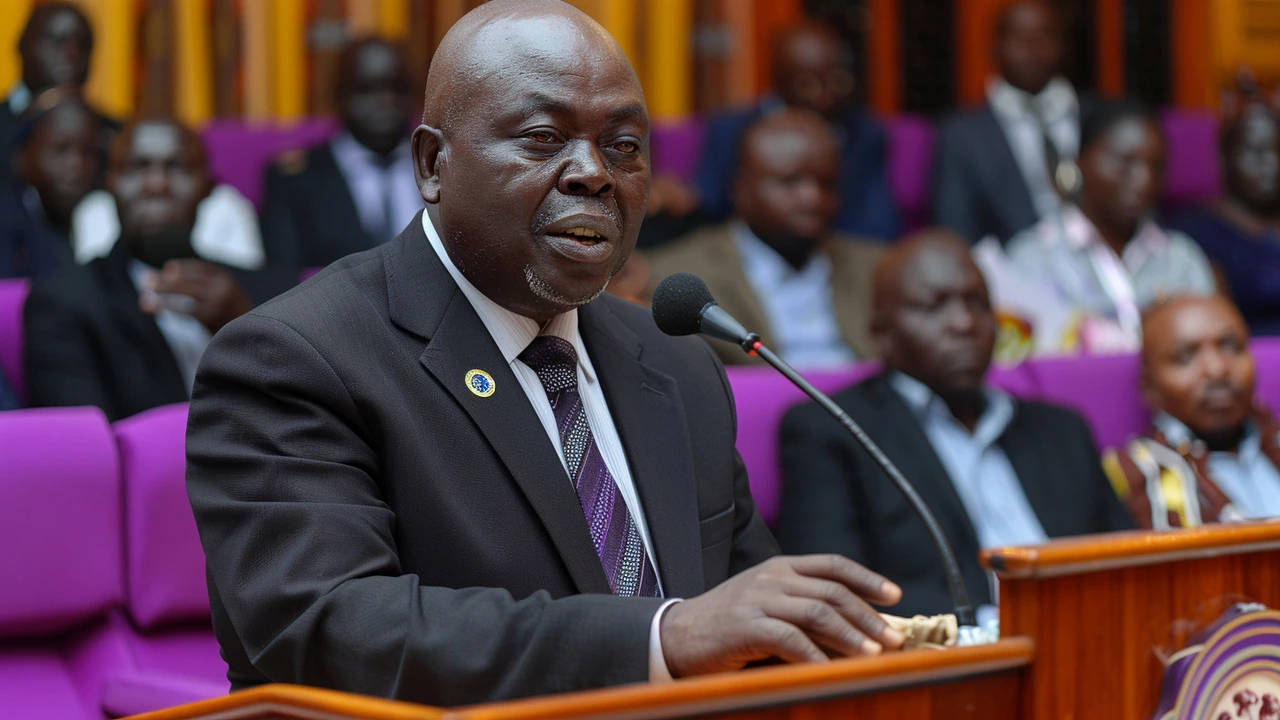Deputy President Gachagua Demands NIS Chief Noordin Haji's Resignation Over Intelligence Failures
Deputy President Rigathi Gachagua Demands Resignation of NIS Chief Noordin Haji
In a bold move that has sent ripples through the political and security spheres, Deputy President Rigathi Gachagua has publicly demanded the resignation of National Intelligence Service (NIS) Director General Noordin Haji. Gachagua's call was made during a live press conference, where he accused Haji of disseminating disjointed and inadequate intelligence to President William Ruto. The Deputy President's sharp criticism stemmed from what he described as a significant failure in the country's intelligence gathering system, ultimately leading to the fatal demonstrations seen on Tuesday.
Gachagua did not mince words as he laid the blame for the violent protests, which notably included the unprecedented storming of Parliament by angry citizens, squarely at the feet of Haji and his team. The Deputy President decried the current state of the intelligence services, claiming that the NIS has failed to provide actionable intelligence that could have prevented the chaos. Gachagua expressed his disbelief and frustration over what he termed as a dereliction of duty, emphasizing that the dissemination of fragmented intelligence has left the country vulnerable to such disruptions.
The Deputy President highlighted the significant organizational and leadership issues within the NIS, precisely targeting Noordin Haji's management style and efficacy. Gachagua revealed that 13 NIS assistant directors are currently serving under Haji's leadership, which he described as inept. These reservations about the leadership have raised serious concerns about the operational integrity and effectiveness of the intelligence services under Haji's command. Such pointed criticism from a high-ranking official underscores the gravity of the situation, suggesting deep-rooted issues that need immediate addressing.

The Events That Unveiled the Alleged Intelligence Failures
The proximate cause of Gachagua's vehement demand was the unprecedented series of events that unfolded on Tuesday. For the first time, Parliament saw an intense storming by citizens, an incident that caught everyone by surprise. The protests that escalated into this disturbing development were reportedly fueled by longstanding public grievances which, according to Gachagua, were not adequately preempted by the intelligence services. This failure to predict and mitigate the demonstration has been portrayed as a glaring oversight that directly calls into question the effectiveness of the NIS under Haji's leadership.
What makes the scenario even more compelling is the performance of the security forces during the protests. Some reports suggest that the law enforcement agencies were caught off guard, raising questions about their readiness and the quality of intelligence they had at their disposal. Gachagua implied that if the intelligence system had been functioning as required, preventive measures could have been implemented, possibly averting the tragic outcomes of the protests. The Deputy President's critique signifies a broader concern that the intelligence network may be failing in its primary role of safeguarding national security through proactive information dissemination.

Youth Protests and Political Implications
Interestingly, amid his criticism of the intelligence services, Deputy President Gachagua also took a moment to address the demonstrators, particularly the younger generation who turned out in unprecedented numbers. He commended the Generation Z for making their voices heard through the protests, acknowledging their role in highlighting societal issues. This acknowledgment points to a nuanced understanding of the protests, recognizing them as not just a security lapse but also as a catalyst for necessary societal reflection.
The wave of protests has inevitably stirred political waters, prompting responses from various quarters. The Deputy President's firm stance adds a new dimension to the ongoing discourse about national security and intelligence efficacy in the country. Gachagua's call for Haji's resignation is not just a critique but a significant political move that could have far-reaching implications. It brings to the forefront debates about accountability, transparency, and the urgent need for reforms within the intelligence community.
The Future of National Intelligence Service
The future of the National Intelligence Service under the lens of this controversy remains uncertain. Should Haji heed the call for resignation, it could pave the way for a comprehensive overhaul of the intelligence apparatus. Such a shake-up might be crucial in restoring public confidence and ensuring that the intelligence community is adequately equipped to handle evolving security challenges. Gachagua's demands might also pressure the administration to re-evaluate current strategies and invest in more robust intelligence operations.
On a broader scale, this incident underscores the essential role of effective intelligence in national administration. The consequences of inadequate or delayed intelligence dissemination are stark, impacting everything from internal security to public trust. It serves as a stark reminder of the pivotal role that intelligence agencies play in mitigating risks and ensuring national stability.
In sum, Deputy President Rigathi Gachagua's demand for the resignation of NIS Director General Noordin Haji over intelligence failures has opened a new chapter in the discourse on national security and accountability. Whether this move leads to meaningful changes within the intelligence community or sparks further political conflict remains to be seen, but it undeniably puts a spotlight on the critical need for a well-organized and effective intelligence system in safeguarding the nation's interests.
